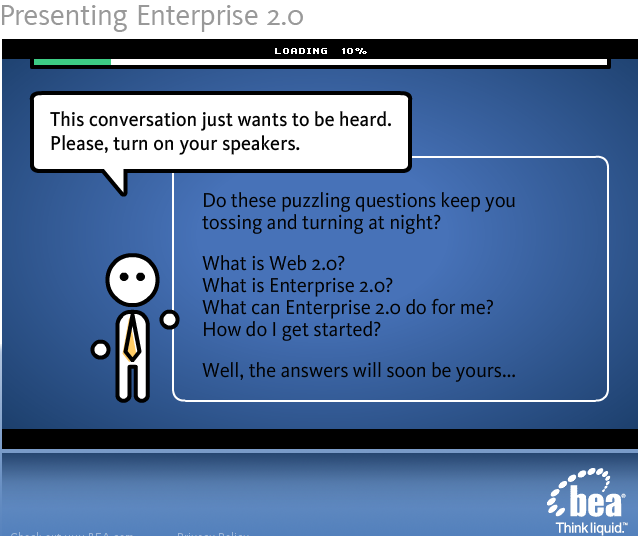I am still catching up on my backlog, some findings of late:
Sören Stamer of Coremedia did an interview with Don Tapscott during the Dresden Zukunftsforum. Nice, in the background there’s the relaxed chilly music of the PuroBeach club (mp3, via Ulrike Reinhard). I was there too and I can tell you that it was a superb evening, chilling on the Elbe beaches. Don is a very thoughtful guy and I enjoyed our very own little chat, clutching at Caipirinhas. BTW, here’s a (german language) article on Tapscott and Wikinomics in the FAZ, nothing new but spreading the word is never a bad thing.
„Wir stehen an einem historischen Wendepunkt der Geschäftswelt, an der Schwelle zu dramatischen Veränderungen der Organisation, Innovation und Wertschöpfung. Offene, vernetzte Unternehmen setzen auf Kollaboration als neue Grundlage der Wettbewerbsfähigkeit“
Next thing is an upcoming interview with David Weinberger that is put together by WE magazine. Next Sunday, June 15, 5 -6 pm (MEZ) David will give a short introduction to his book Everything is Miscellaneous and then the Q&A will be open to everybody who joins the virtual interview club here.
Weinberger’s work focuses on how the Internet is changing human relationships, communication, and society.
The discussion will be led by Steffen Bueffel, Ulrike Reinhard and (yes, guess who?) Sören Stamer. Reminds me again that I owe him a review of “Enterprise 2.0 – The Art of Letting Go” …
To warm up to this event check out some more multimedia content, like Dions Enterprise 2.0 TV Show here or this nice video by BEA:
